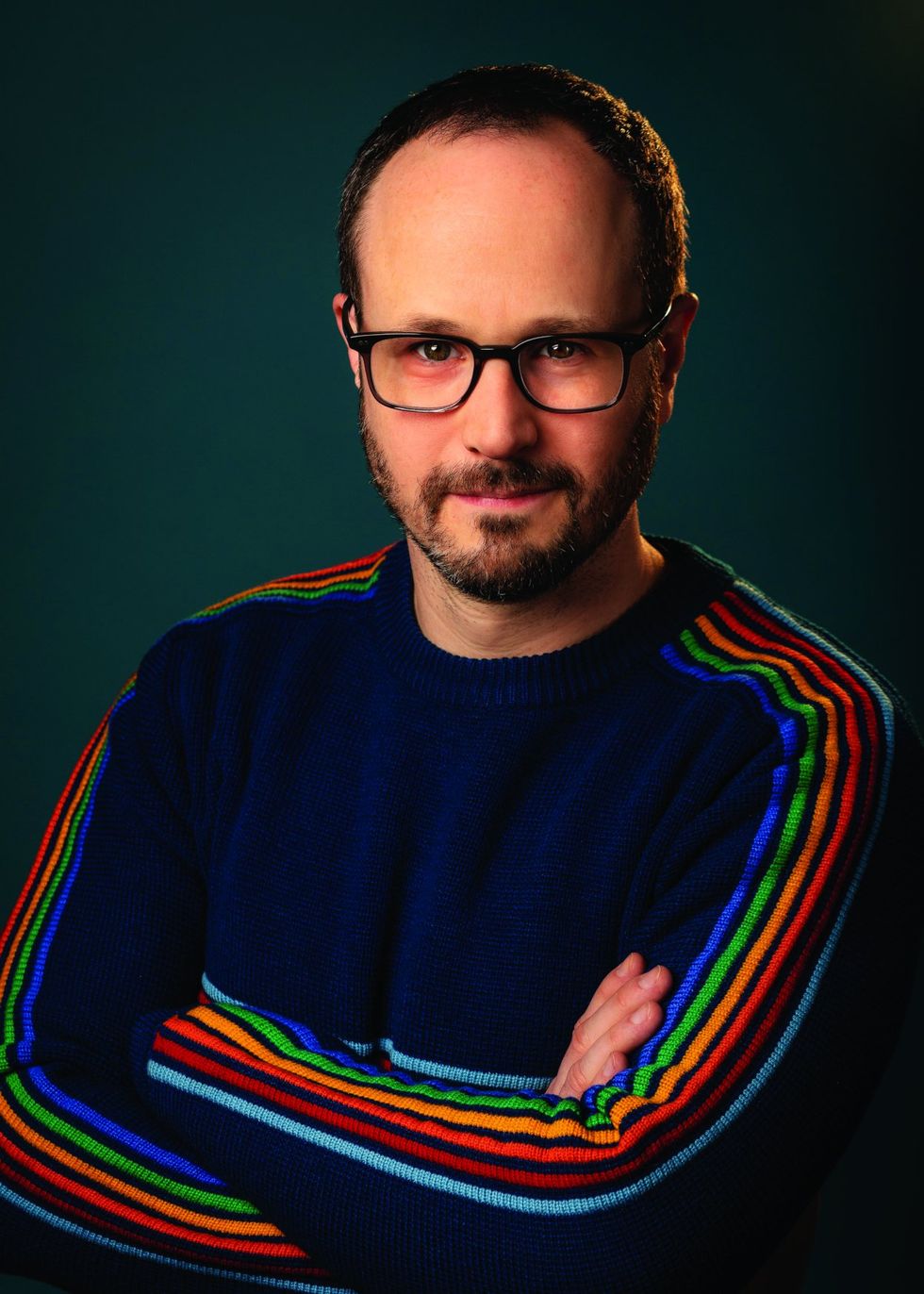
Cast of The Golden Girls, via Getty Images
Matt Baume’s new book explores the fascinating relationship between queer history and the American sitcom.
May 24 2023 1:36 PM EST
By continuing to use our site, you agree to our Privacy Policy and Terms of Use.

Matt Baume’s new book explores the fascinating relationship between queer history and the American sitcom.
Author, YouTuber, and podcaster Matt Baume is a born storyteller, and in many ways, a queer historian. The Seattle-based writer says he has “a passion for telling fun stories about the history of pop culture,” which is evident in his informative videos that reveal fascinating facts and anecdotes often buried by time (and homophobia).
Though his documentary-style videos are certainly educational and well-researched, Baume keeps things light, always adding a bit of wit and whimsy into the mix — as evidenced by many of his video’s titles, like “Condoms! Condoms! Condoms! Why Do Gay Men Love The Golden Girls?” and “Hitchcock’s Homos: The Secret Gay Love Affair Behind Alfred Hitchcock’s Rope.”
Baume is also the creator of the podcast The Sewers of Paris, which, much like his YouTube channel, “explores the entertainment that has shaped the lives of queer people,” and is the author of Defining Marriage (2015), which tells personal stories of people who fought for marriage equality over the last 40 years. He also has a Patreon channel that contains fun bonus videos and content.
His new book, Hi Honey, I’m Homo!: Sitcoms, Specials, and the Queering of American Culture, which released yesterday, culminates much of Baume’s body of work by examining the history of television through a queer lens.

Baume says the book is “basically a history of queer characters on sitcoms, on screen, and behind the scenes. And it’s about the story that is told over decades of how those characters and how those storylines got there — and also how those shows revealed queer liberation that was going on in real life, as they were airing.”
Hi Honey, I’m Homo! covers everything from flamboyant queer-coded characters like Uncle Arthur of Bewitched to the network-versus-censors battles over Soap’s gay content, to the behind the scenes activism on the set of The Golden Girls. But Baume doesn’t just cover TV classics, his book takes us right up to the recent past, from Ellen DeGeneres’s coming-out fallout to the wild success of Modern Family — which features one of the most positive representations of a queer family on a mainstream sitcom to date.
During his extensive research for the book, Baume did get to speak with a true TV legend and pioneering LGBTQ+ ally — Norman Lear, the American producer and screenwriter who has been involved in developing over 100 shows over his career, and who is now 100 years old (and still working!). Lear’s popular and lauded 1970s sitcom All in the Family was the first to feature a recurring “crossdressing” character, Beverly LaSalle, who today would most likely be defined as transgender or genderfluid.
Baume says he asked Lear “a lot of questions about his process of creating All in the Family [and] about his early fights with network censors, and also the conversations that they had in the early 1970s about how to depict queer characters, which was really…very uncharted territory.”
Baume also says he “spoke to folks who were involved with the show Ellen, about what a landmark that was, and the conversations that were happening behind the scenes to make that show happen. I spoke to folks who were involved with the Golden Girls and with Soap and got their take about what was going on behind the scenes with those shows.”
He adds that one of his favorite discoveries in writing the book was a behind the scenes story about the 1970s cop comedy, Barney Miller.
“The creator of the show, Danny Arnold, wanted to have a gay character on the show,” Baume says. “It’s a show set in Greenwich Village in the 1970s. How could they not have a gay character there? But of course, you’ve got this whole team, this apparatus of network censors who wanted to stop him. And to his credit, what Danny did…is reached out to queer people. He got a gay man, a consultant, on board to work on the gay characters on the show.”
And when Arnold was told by ABC executives that the queer content still probably wouldn’t make it to air, Baume adds that Arnold ended up financing the episode himself. “He really put his money where his mouth was to make a beautiful episode of television…. Honestly, it’s inspiring. He was a guy who stood up for what he knew was right.”
Charlie Kirk DID say stoning gay people was the 'perfect law' — and these other heinous quotes